
New handguns in 10MM AUTO just keep a-coming! Which is a great thing for shooters and hunters like me whose go-to handgun round is the 10MM AUTO.
Among the newest 10MM’s to launch is the Smith and Wesson Model M&P® 10MM M2.0™ with an Optics Ready Slide. The striker-fired pistol features an impressive 15+1 ammunition capacity, a 4.6-inch-long barrel, and a sight radius of nearly 7.0-inches. I shot and tested a new production model M&P 10MM M2.0 recently and was impressed with the pistol’s accuracy, functionality, and how well it felt in hand.
Hunting, home defense, and open and concealed carry—the M&P 10MM M2.0 deserves a good look for anyone in the market for a 10MM that can do all of these things and do them very well.
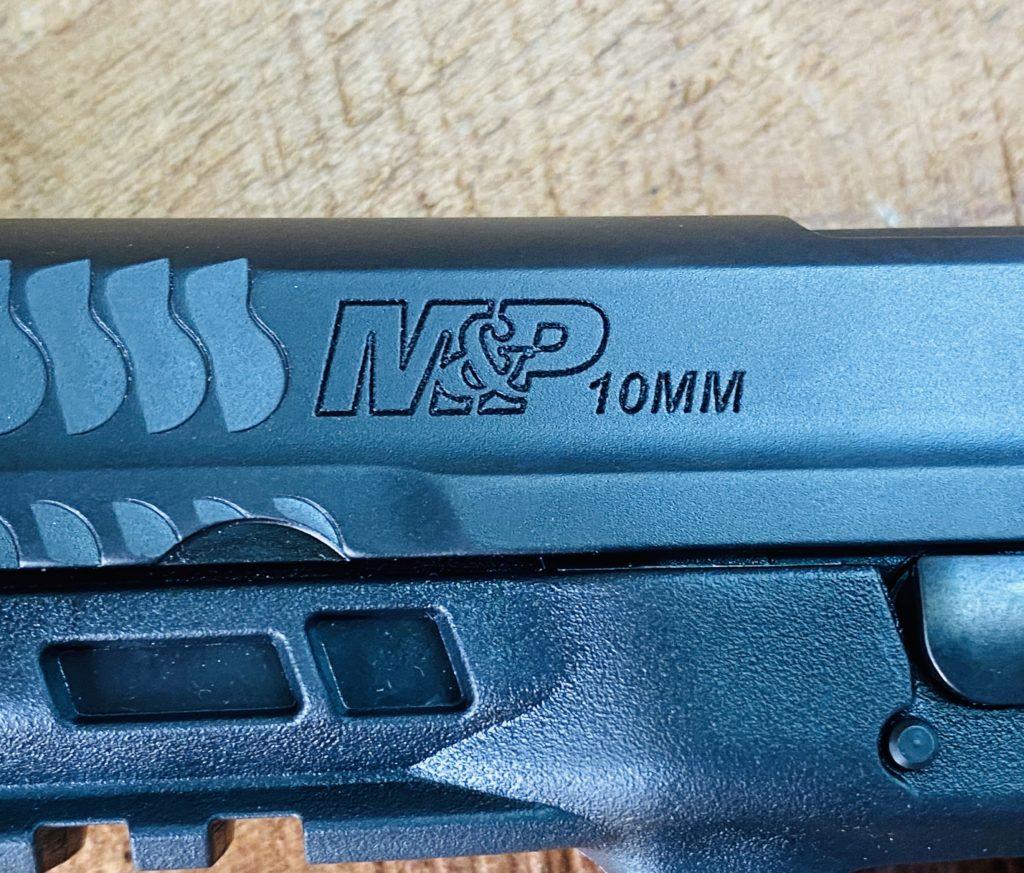
My introduction to 10MM pistols came nearly a decade ago via the PARA USA Elite LS Hunter 1911 with a 6.0-inch barrel. It’s a great pistol, and I’ve also acquired and tested a good number of 1911’s chambered in 10MM AUTO since then. But, while I appreciate the 10MM in the 1911 platform, I think the many new poly-framed and striker-fired 10MMs are probably a better choice for the hunter and bear-country hiker than the 1911 models.
“Better choice” in that the poly-framed 10mm’s tend to hold much more ammunition than the standard 8+1 ammunition capacity of the 1911 models. True, you will only get a shot or two off in most hunting scenarios, but not in all of them, such as when a sounder of wild hogs suddenly pops out of the brush. For bear defense, I’d much prefer the 15+1 rounds of the new M&P 10MM M2.0 versus the nine rounds in my PARA, too.
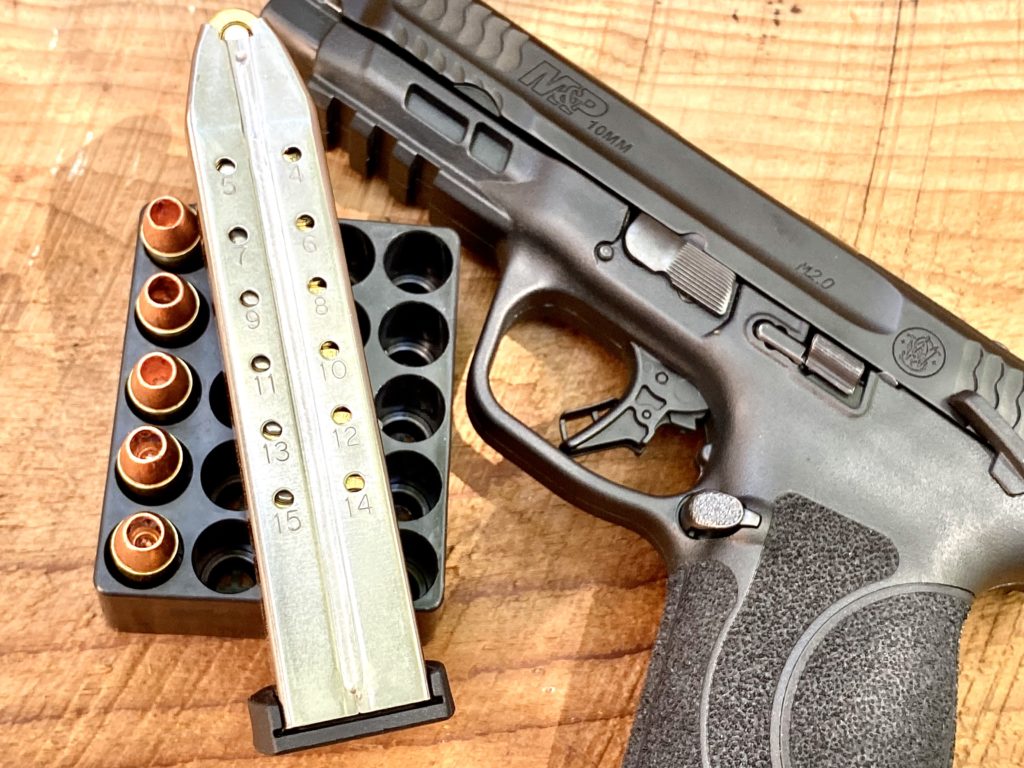
The poly-framed 10MM’s are lighter, too. The M&P 10MM M2.0, for example, weighs just 30 ounces unloaded, and my PARA I guesstimate at 40 ounces. Other 1911’s with five-inch barrels usually hit the scale at 38 ounces or so. That extra weight isn’t a burden at the range or while sitting in a hunt stand. However, losing seven to ten ounces for a day’s toting on a belt or shoulder rig is a real plus.
This brings me back to the M&P 10MM M2.0.
Like other M&P pistols, the 10MM M2.0 features a lower barrel bore axis than many semi-autos, reducing muzzle rise for faster follow-up shots.
The pistol’s 18-degree grip angle, the same as that found on most 1911 model pistols, provides for a natural point of aim. If the standard grip doesn’t fit your hand well, the 10MM M2.0 comes standard with four interchangeable palm swell grip inserts for optimal hand fit and trigger reach.
Smith & Wesson built the M&P 10MM M2.0 with an extended stainless-steel chassis embedded in the frame to reduce flex and torque when firing. Flex and torque can create malfunctions, and I experienced zero problems in over 200 rounds of 10MM in my evaluation of 10MM M2.0. So, I have to believe that the steel chassis is doing the job.
As mentioned, the pistol is optics-ready with a removable plate cut into the rear of the slide. My pistol arrived with seven adapter plates to fit a wide variety of optics including the Crimson Trace 1500, the Leupold Delta Point and Delta Point Pro, and the Trijicon RMR, as well as optics utilizing the Docter footprint.
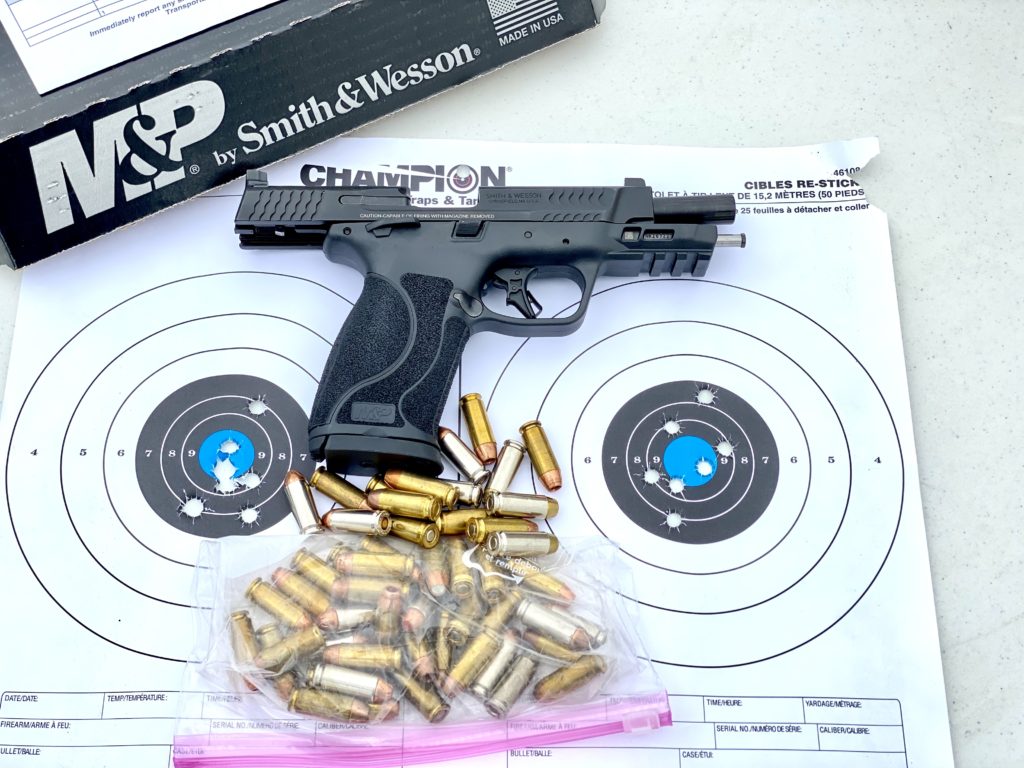
I didn’t use an optic on the pistol as the standard sights struck me as very functional—which my shooting proved to be true.
My test model came with a manual, ambidextrous thumb safety, though the pistol can also be had without a safety.
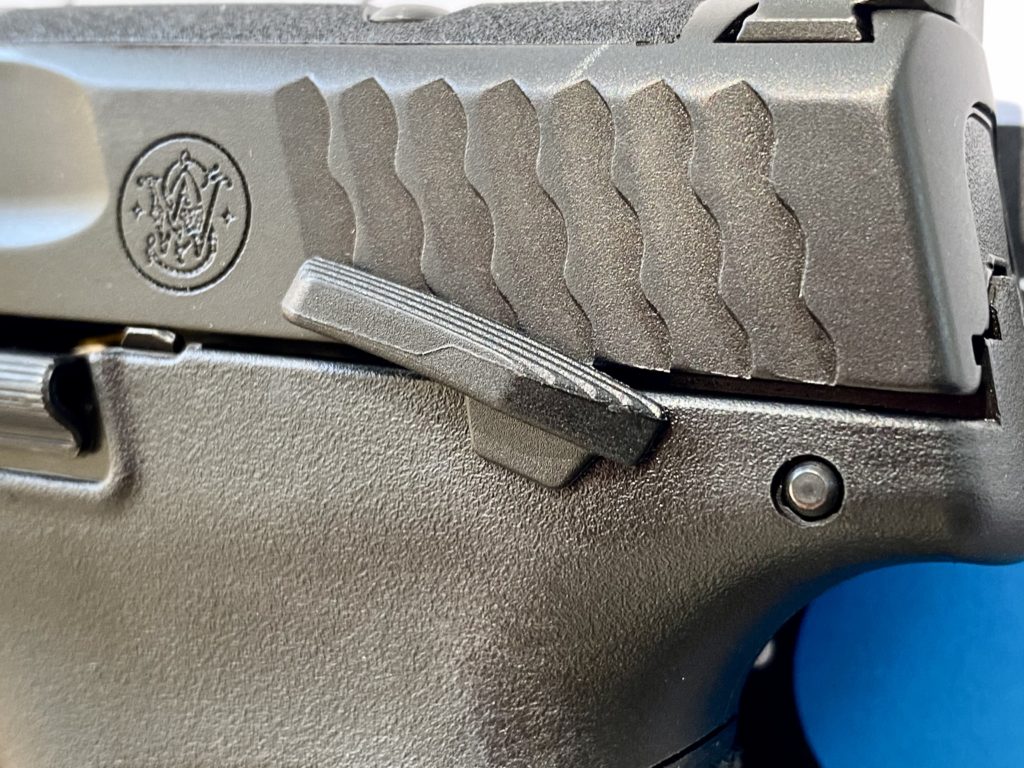
From past work with 10MM AUTO handguns, I’ve acquired a plastic, one-quart freezer bag nearly filled with loose rounds of 10MM. Was nearly filled, I should note, the ammunition almost spent in my early shooting with the M&P 10MM M2.0. The bag contained 10MM frangible rounds from Dynamic Research Technology and Team Never Quit, standard 180-grain range rounds made by Sig Sauer and Remington, plus several range and self-defense rounds I couldn’t ID.
At my outdoor range, I shot off a couple dozen rounds at five yards, offhand, to get a feel for the pistol. Then, I sorted through my freezer bag and loaded three magazines each with ten rounds, making sure the rounds alternated, round to round, between different ammo brands.
I blasted off each magazine, firing fast, not for accuracy but to see how well the pistol loaded and extracted from different round to different round. It’s a test I’ve done with many semi-automatic pistols, and several have jammed up in the shooting process, not liking a particular round, especially when transitioning from a range round to a hollow point or poly-tipped self-defense round.
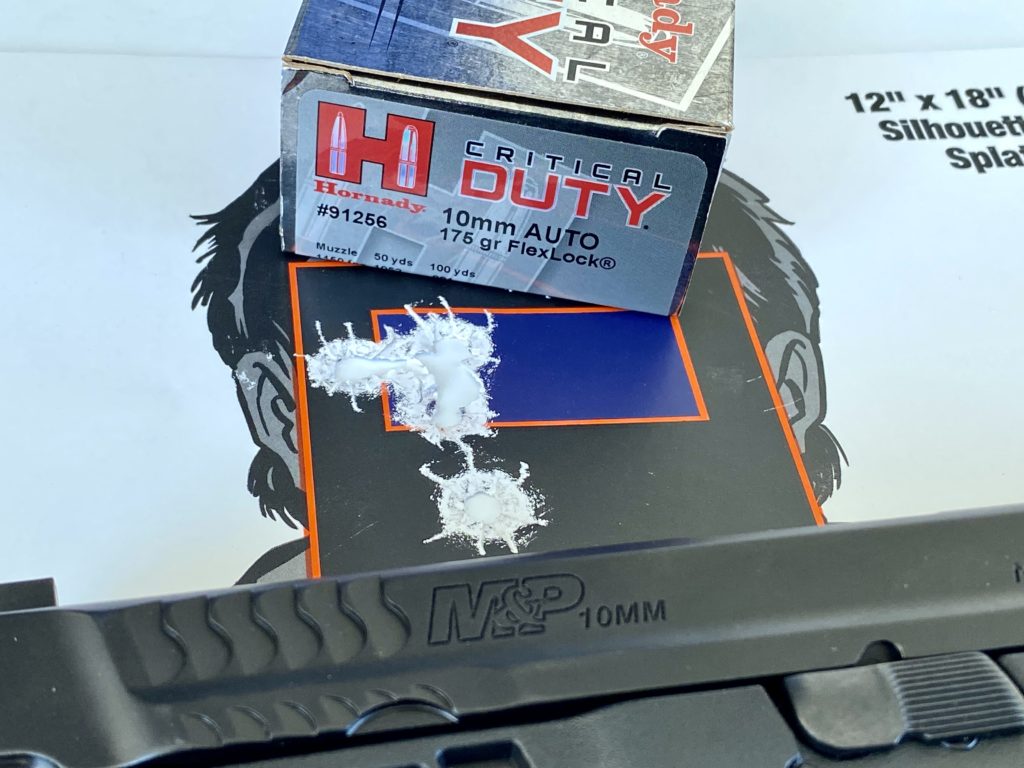
But I experienced no jams, failures to feed, or failures to go back into battery with my alternating rounds magazines and the M&P 10MM M.2.0.
The pistol proved to be very accurate with nearly every brand of ammunition I used, the exception being the Sig Sauer Elite Performance 10MM range ammo firing a 180-grain full metal jacket bullet. Group sizes were twice as large on average with the Sig as with the other rounds mentioned below. I’ve used the Sig 10MM in other reviews and it usually placed tight groups. So, I credited the larger groups with the pistol and Sig ammo simply not matching up very well.
It happens.
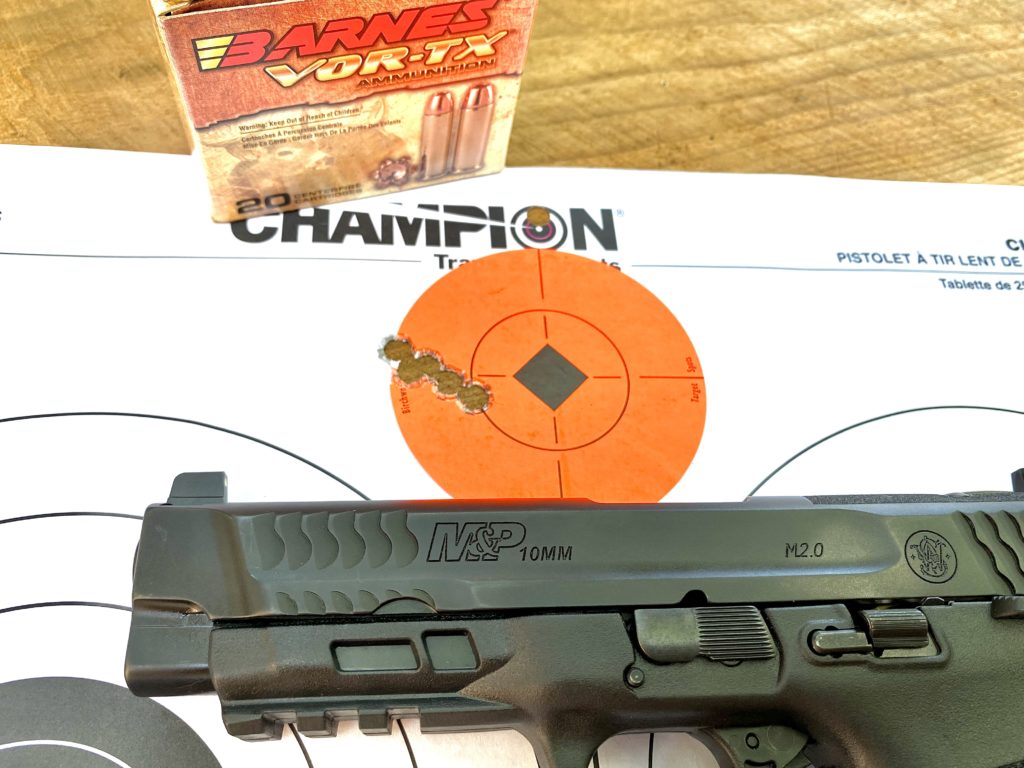
Some of my best groups included:
—Hornady Critical Duty loaded with a 175-grain, FlexLock bullet, six rounds at six yards, offhand, scoring 1.1-inches, with five of the shots clustering at just .60-inches;
—Barnes VOR-TX, 10 yards offhand and five shots at .80-inches, launching a 155-grain TAC-XP Hollow point, all-copper bullet (excellent hunting round, I’ve taken over a dozen wild hogs and two deer with it);
—Winchester Defender and its 180-grain bonded and jacketed hollow point bullet, pegging a 1.4-inch group, ten yards and offhand, with three shots at just .50-inches.
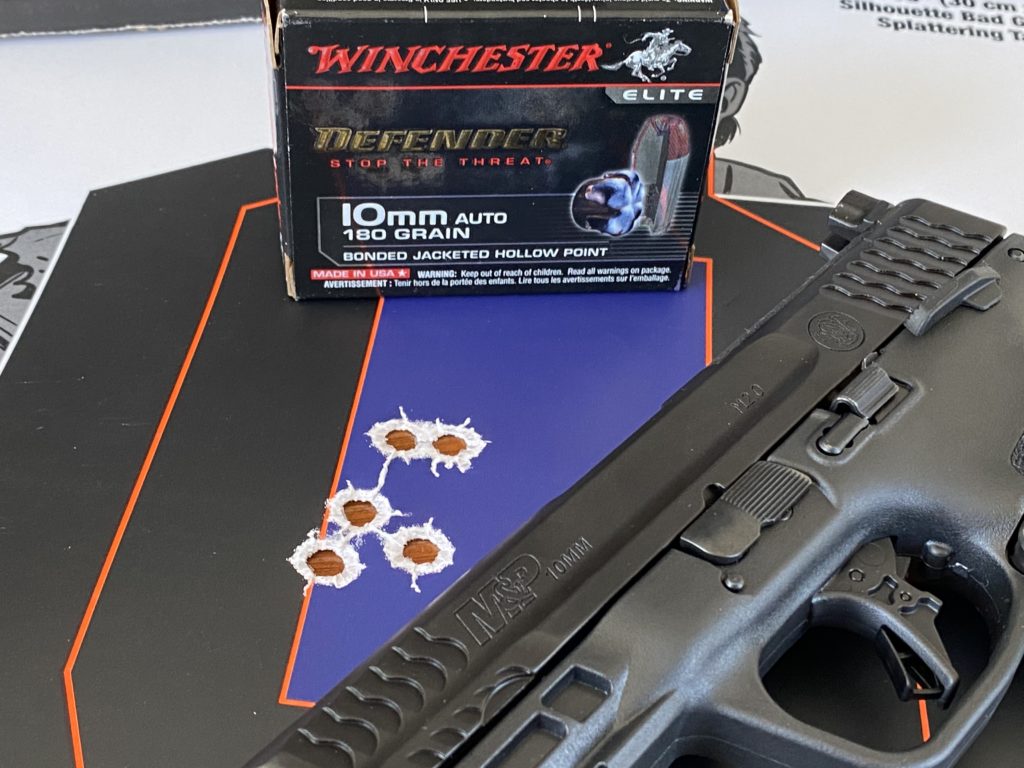
Then, I moved back to 15 yards and firing from a rest tried out the Winchester Defender. The best group scored in at 1.40-inches, with the first three shots at .70-inches. I fired off several other groups at approximately 2.0 inches.
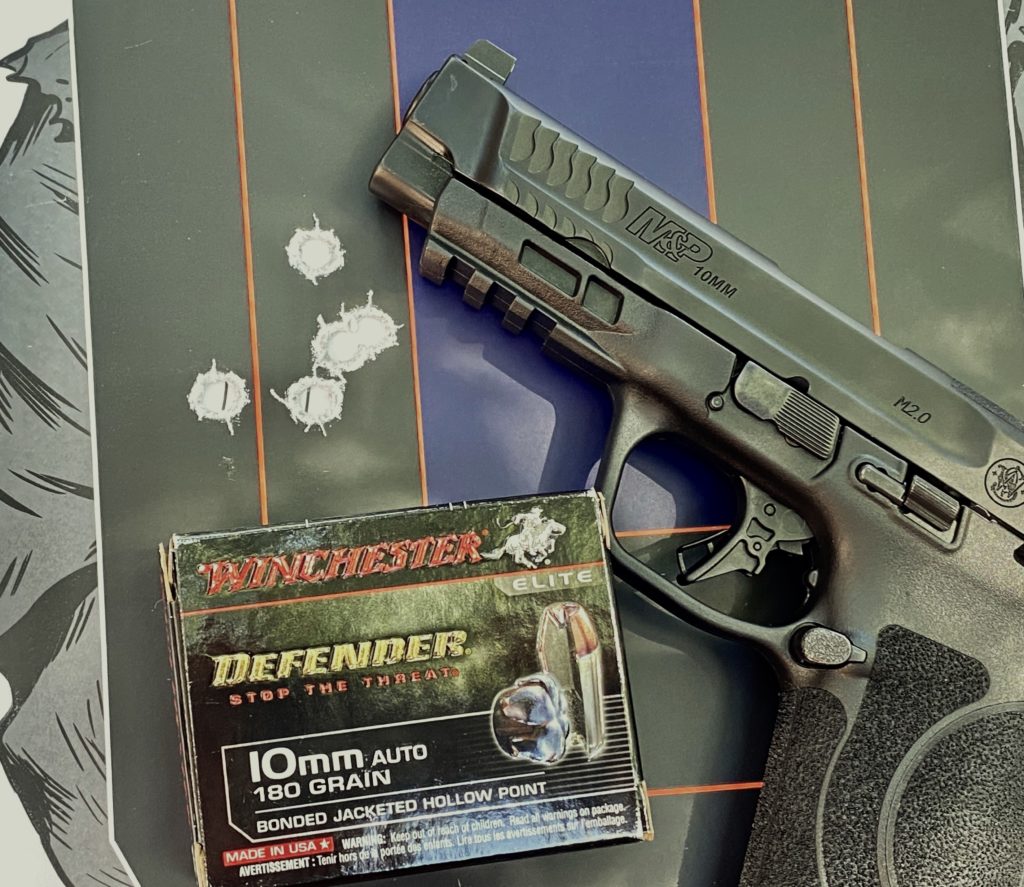
The M&P’s three dot sights came to my eye easily and quickly, and the rear notch was generously cut to allow for a good view of the front post.
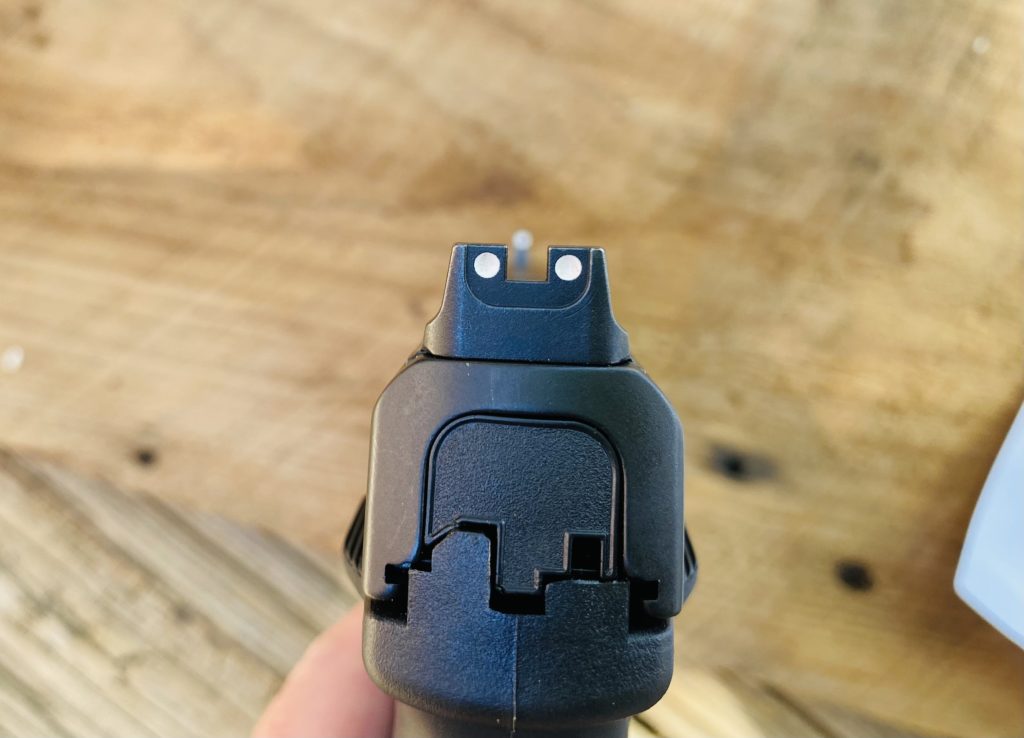
The trigger pull of the pistol measured out at an average of 2 pounds, 6 ounces, according to my Lyman Electronic Trigger Pull Gauge. Striker-fired, the trigger was functional but would never be confused with a tight 1911 trigger. The trigger had about a quarter inch of uptake before it hit the wall, but was quite easy to keep steady at the wall until the sights lined up correctly.
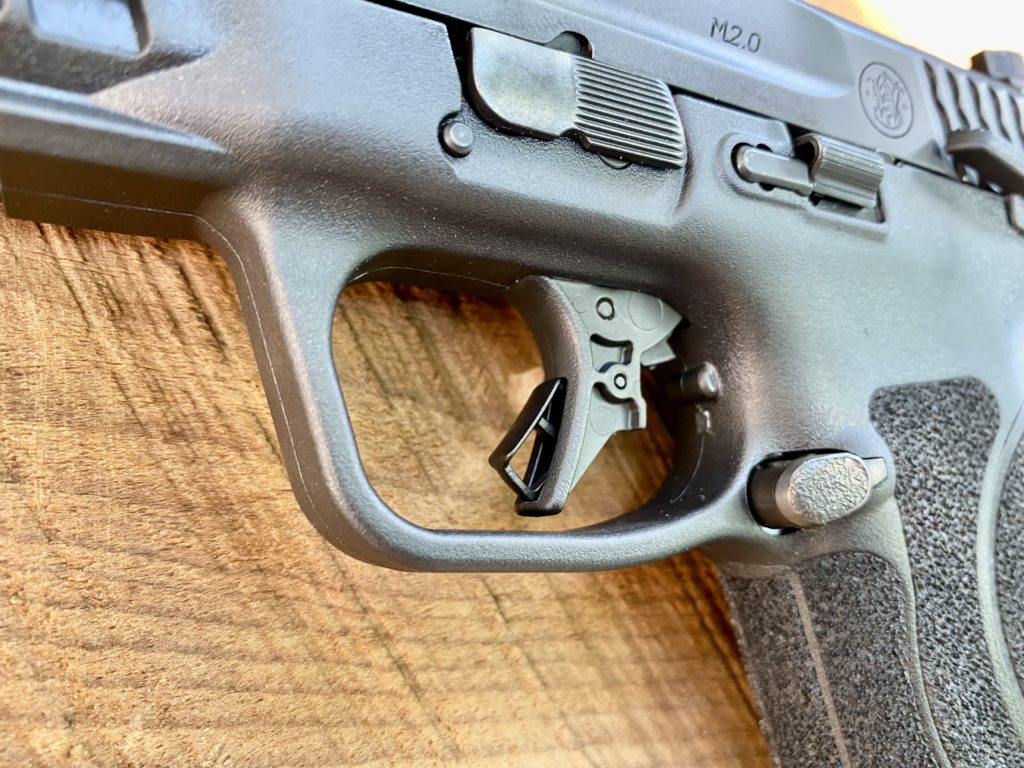
At that point, the trigger snapped off pretty cleanly.
The sandpaper-like stippling on the grip and straps was deep enough to engage my palms and provide a solid grip on the M&P. The loading chamber indicator was a nice touch, while the stainless-steel slide and barrel were both finished in Smith and Wesson’s black Armornite, a hardened nitride coating that promised years of protection even in harsher conditions.
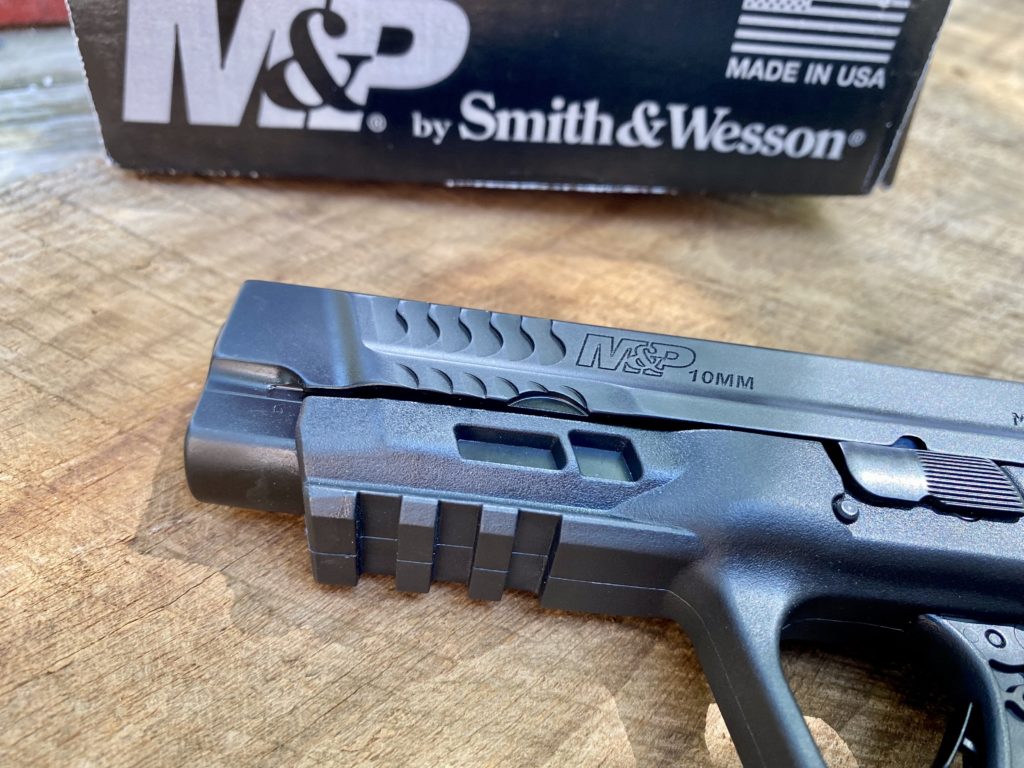
With a suggested retail of under $700, the M&P 10MM M2.0 is a real value and should be a consideration for anyone in the market for a semi-automatic chambered in the powerful 10MM AUTO.
Specifications: Smith & Wesson Model M&P® 10MM M2.0™ Optics Ready Slide
Caliber: 10mm Auto
Action: Striker Fire
Capacity: 15+1
Optics Ready?: Yes
Barrel Material: Stainless Steel, Armornite® Finish
Slide Material: Stainless Steel, with Armornite® Finish
Frame Material: Polymer
Slide Finish: Matte Black
Frame Finish: Matte Black
Barrel Twist: 1:10˝ – 5 RH
Barrel Length: 4.6″
Front Sight: Optic Height White Dot
Rear Sight: Optic Height White 2-Dot
Grip: Polymer
Safety: Ambi Thumb Safety (as tested)
Overall Length: 7.9”
Frame Width: 1.3”
Overall Height: 5.6”
Sight Radius: 6.9”
Weight: 29.3 oz.
MSRP: $665.00
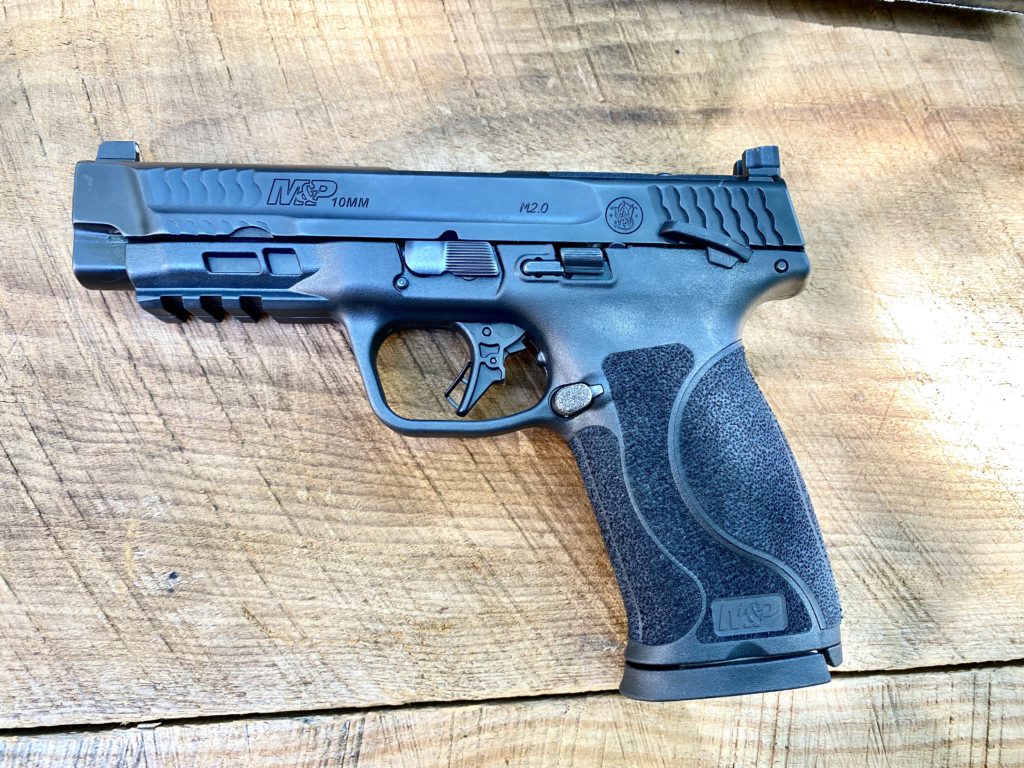
***Buy and Sell on GunsAmerica! All Local Sales are FREE!***
